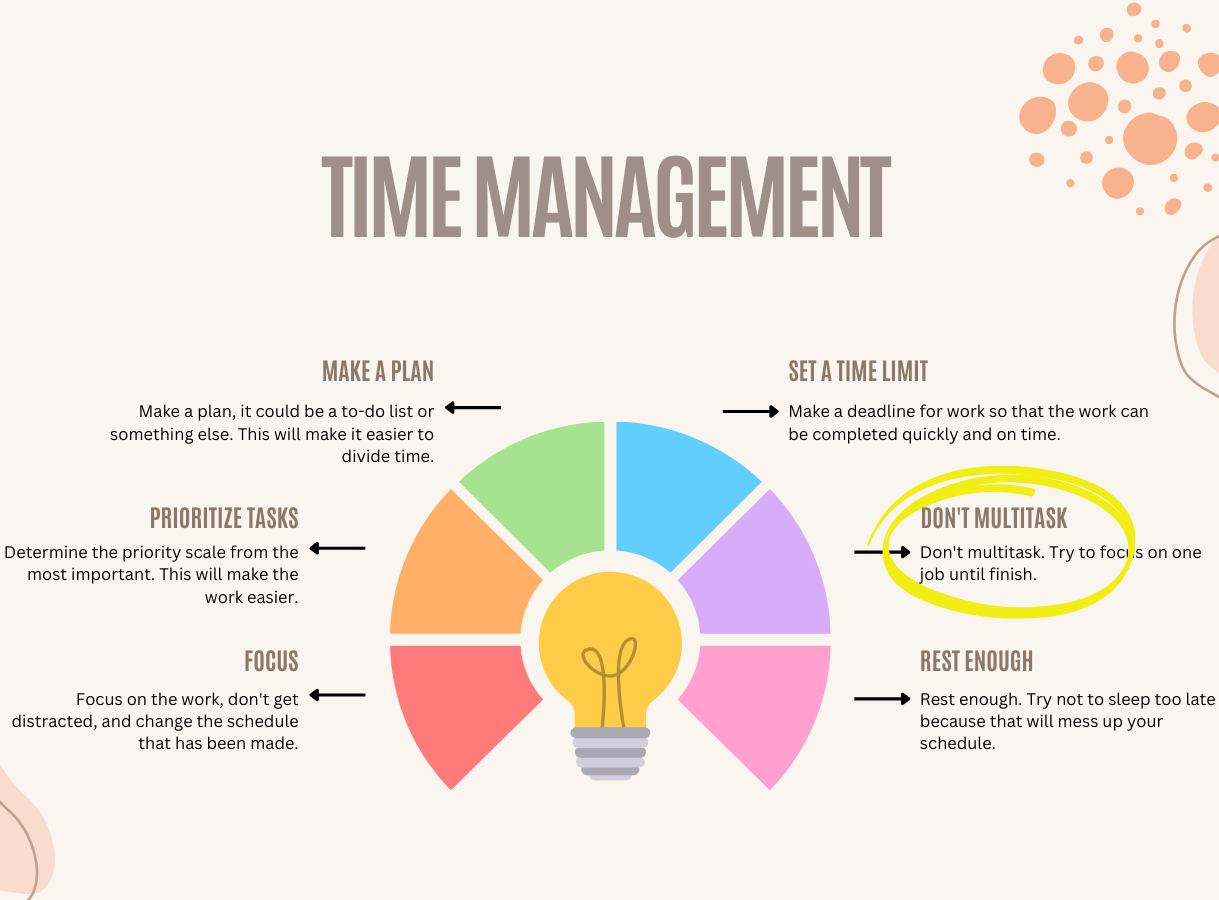The million dollar question:
Although we may often find ourselves juggling multiple tasks simultaneously,
believing that we are accomplishing more in less time, the real question is, Can
we truly multitask?
Is our ability to handle multiple tasks concurrently as efficient as we think it
is? Or is multitasking nothing more than a myth?
Switching cost of multitasking
While it may seem like a desirable skill, research suggests that true
multitasking is a cognitive illusion. In reality, our brains are not designed to
focus on multiple complex tasks at once.
Our brain’s attentional capacity is limited, and when we attempt to multitask,
what we are actually doing is rapidly switching our attention back and forth
between tasks. This task-switching comes at a cost, known as the “switching
cost.” Each time we switch tasks, our brains require time and effort to refocus,
resulting in a loss of efficiency and increased errors.
Multitasking also hampers our ability to concentrate and produce quality work.
When our attention is divided, we are more likely to make mistakes, overlook
important details, and experience mental fatigue.
This is particularly true for complex tasks that require deep thinking and
problem-solving. By trying to do multiple things simultaneously, we are
sacrificing depth for superficiality.
Is multitasking a complete myth?
Not really!
There are certain activities that are compatible with multitasking.
For example, listening to music while performing routine or repetitive tasks may
not significantly impair performance. In such cases, our brain’s demands for
both activities are minimal, allowing them to coexist without substantial
interference.
Some individuals claim to be better multitaskers than others. While it is true
that certain individuals may have a higher capacity for task-switching or
exhibit better performance in certain multitasking scenarios, research suggests
that these “supertaskers” are rare exceptions rather than the norm. For the
majority of us, attempting to multitask only leads to a decrease in overall
efficiency.
Multitasking, as commonly understood, is not an efficient way to handle complex
tasks. While we may feel like we are accomplishing more, research consistently
demonstrates that our brains are not wired to handle multiple demanding tasks
simultaneously. Multitasking leads to a decrease in productivity, an increase in
errors, and a decline in the quality of our work. Rather than falling into the
multitasking trap, we should embrace single-tasking and develop strategies to
enhance our focus and attention.








Comments
Your email address will not be published. Required fields are marked *